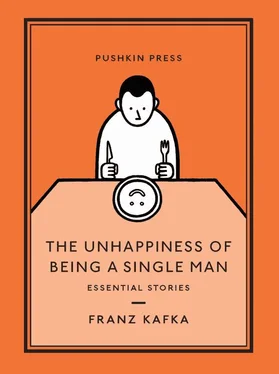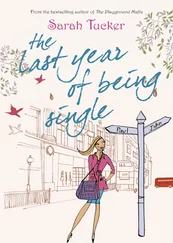His answer to the officer was never in doubt; he’d seen too much over his lifetime to have wobbled on this question; he was fundamentally honest and not afraid. Nevertheless, he hesitated for a moment under the gaze of the officer and the condemned man. But finally he said, as he had to: “No.” The officer blinked several times, but didn’t look away. “Would you like an explanation?” asked the researcher. The officer nodded silently. “I am opposed to this process,” said the researcher. “Even before you took me into your confidence—I won’t break that confidence in any way—I’d already considered whether I would be justified in intervening to try and stop this and whether an intervention would have even the smallest chance of success. It was clear to me who I should turn to: the commandant, of course. You’ve made that clearer still, but don’t think that you’ve confirmed what I intended to do, on the contrary, I’m deeply touched by your sincere conviction, even if I won’t be diverted by it.”
The officer stayed mute, turned to the machine, took hold of one of the brass poles and then looked up at the engraver, leaning back a little, as if he wanted to check that everything was in order. The soldier and the condemned man seemed to have struck up some kind of friendship; even though it was difficult because he was so tightly bound, the condemned man made hand signals to the soldier, who bent down to him; the condemned man whispered something; the soldier nodded.
The researcher followed the officer and said, “You don’t know what I’m going to do. Yes, I will tell the commandant what I think of this process, but not at the meeting, I’ll tell him privately; I also won’t stay here long enough to get pulled into a public debate; I’ll set off early tomorrow morning, or at least be on a ship by then.”
The officer didn’t seem to be listening. “So you didn’t find the judicial process convincing,” he said to himself and gave a smile like an old man hearing nonsense from a child and keeping his real thoughts concealed behind it.
“That means it’s time,” he said finally, and suddenly looked up at the researcher, bright-eyed, as if trying to communicate some request, some demand that he take part.
“What’s it time for?” the researcher asked uneasily, but didn’t get a reply.
“You’re free to go,” the officer said to the condemned man in his own language. The man didn’t believe him to begin with. “Yes, you’re free to go,” said the officer. For the first time, the condemned man’s face really became animated. Was it true? Was it just some passing whim of the officer’s? Had the foreign researcher secured his release? What was going on? These questions played across his face. But not for long. Whatever the reasons, if he was allowed to be free, he wanted to be free for real, and he began to pull at his restraints as much as the harrow would permit.
“You’ll tear the strap!” shouted the officer. “Keep still! We’re letting you out.” He signalled to the soldier and together they started undoing the straps. The condemned man laughed wordlessly to himself, now turning left to face the officer, now right towards the soldier, and not leaving out the researcher either.
“Pull him out,” the officer told the soldier. It needed to be done quite carefully because of the harrow. The condemned man already had some cuts on his back because of his impatience.
From that point on, the officer barely paid any attention to him. He went over to the researcher, pulled out his leather portfolio again, eventually found the page he was looking for, and showed it to the researcher. “Read it,” he said.
“I can’t,” said the researcher. “I already told you that I can’t read these pages.”
“Look closer,” the officer said, and stood next to the researcher to read with him. When that didn’t help either, he pointed with his pinkie finger, from high above the page, as if it must never be touched, and moved it across the page to help the researcher read the script. The researcher did make an effort, hoping that he’d be able to do at least one thing to please the officer, but he found it impossible. So the officer began to draw the letters and then finally he read them all out together: “‘Be just!’ is what it says,” he told the researcher, “Now you must be able to see it.” The researcher bent so far forward over the page that the officer moved it further away for fear he would touch it; although the researcher didn’t say anything else, it was obvious that he still hadn’t been able to read it. “‘Be just!’ is what it says,” the officer repeated.
“That’s fine,” said the researcher. “I don’t doubt that that’s right.”
“All right, then,” the officer said, at least partially satisfied, and climbed up the ladder holding the page in one hand; he very carefully placed the sheet in the engraver and then seemed to be completely reconfiguring the gear train; it was difficult work, the gears must be very small; sometimes the officer had to examine them so closely that his head disappeared entirely into the engraver.
The researcher followed this work from below; his neck grew stiff and his eyes began to hurt with the brightness of the sky. The soldier and the condemned man were busy with each other. The soldier used his bayonet to pull the man’s shirt and trousers out of the ditch. The shirt was horribly filthy and the condemned man washed it in the water bucket. When he put the things on, he and the soldier both roared with laughter, because the clothes were still cut through at the back. The condemned man seemed to feel obliged to entertain the soldier and he twirled around in his shredded clothes in front of him, while the soldier laughed so hard he sat on the ground and slapped his thighs. Nevertheless, they did try to restrain themselves a little because of the two gentlemen.
Once the officer had finally finished at the top of the machine, he took another look over the whole thing, smiled, flipped the engraver’s lid shut, climbed down, glanced into the pit, then at the condemned man, was satisfied to see that he’d fished out his clothes, went over to the water bucket to wash his hands, noticed the disgusting filth too late, was sad that he now couldn’t wash his hands, and—it wasn’t much of a substitute but better than nothing—plunged them into the sand, before standing up and starting to unbutton his uniform. The two ladies’ handkerchiefs that he’d stuffed into his collar fell into his hand. “Here you have your handkerchiefs,” he said and threw them to the condemned man. To the researcher he said in explanation: “A present from the ladies.”
Despite the evident hurry with which he took off his tunic and then undressed fully, he still handled every item of clothing with great care, even running his fingers across the silver braid on his jacket and shaking a tassel into place. What didn’t really fit with this carefulness, however, was that as soon as he’d finished folding a piece of clothing, he reluctantly tossed it into the ditch. The last thing he had left was his short sword and the belt it hung from. He pulled the sword out of the scabbard, snapped it, gathered everything together—the pieces of sword, the scabbard and the belt—and threw it all down so it jangled at the bottom of the ditch.
Now he stood there naked. The researcher bit his lip and said nothing. He knew what was going to happen, but he had no right to prevent the officer from doing anything he’d decided to. If the judicial process the officer was so devoted to really was about to be halted—possibly as a result of intervention by the researcher, something he still felt he had to do—then the officer’s behaviour was entirely correct; in his place the researcher would have acted no differently.
Читать дальше












